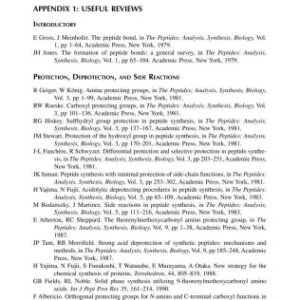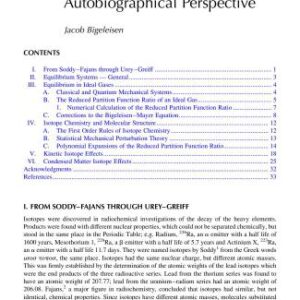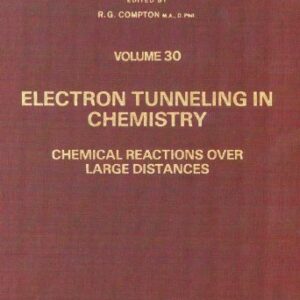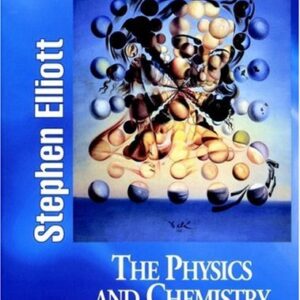Heterocyclic chemistry is a central part of organic chemistry and biochemistry, dealing with a particular set of chemical structures; organic compounds with a ring structure containing at least one heteroatom (commonly nitrogen, oxygen or sulfur).
Heterocyclic Chemistry at a Glance, Second Edition provides both an introduction and summary of the main principles and reactions of heterocyclic chemistry, for students studying chemistry and related courses at undergraduate level.?
This second edition has been much expanded, allowing for a more thorough treatment of key principles and the inclusion of extra examples and illustrations, including heterocycles used in electronics, explosives, polymers, dyestuffs, pigments and that occur in food. All chapters have been revised and updated, including references to books and reviews, and student exercises, with answers on line at http://booksupport.wiley.com. New to this edition is the use of colour in schemes and diagrams highlighting parts of products (or intermediates) where a change in structure or bonding has taken place.
Based on the highly successful and student-friendly “at a glance” approach, the material developed in this book has been chosen to help the student grasp the essence of heterocyclic chemistry, ensuring that they can confidently use that knowledge when required. The structure of the book allows for quick assimilation, understanding and recall of key concepts, facts and definitions, providing an invaluable aid to revision for students preparing for examinations.
Reviews for the first edition:
“This book can be recommended to students looking for a textbook on heterocyclic chemistry. The organization of the material is oriented towards the needs of undergraduate students, but nevertheless the book is comprehensive and will also be of value for more advanced readers.” Heterocycles
Content:
Chapter 1 Heterocyclic Nomenclature (pages 1?3):
Chapter 2 Structures of Heteroaromatic Compounds (pages 4?8):
Chapter 3 Common Reaction Types in Heterocyclic Chemistry (pages 9?20):
Chapter 4 Palladium in Heterocyclic Chemistry (pages 21?32):
Chapter 5 Pyridines (pages 33?47):
Chapter 6 Diazines (pages 48?61):
Chapter 7 Quinolines and Isoquinolines (pages 62?70):
Chapter 8 Pyryliums, Benzopyryliums, Pyrones and Benzopyrones (pages 71?77):
Chapter 9 Pyrroles (pages 78?85):
Chapter 10 Indoles (pages 86?98):
Chapter 11 Furans and Thiophenes (pages 99?106):
Chapter 12 1,2?Azoles and 1,3?Azoles (pages 107?121):
Chapter 13 Purines (pages 122?131):
Chapter 14 Heterocycles with More than Two Heteroatoms: Higher Azoles (5?Membered) and Higher Azines (6?Membered) (pages 132?142):
Chapter 15 Heterocycles with Ring?Junction Nitrogen (Bridgehead Nitrogen) (pages 143?149):
Chapter 16 Non?Aromatic Heterocycles (pages 150?157):
Chapter 17 Heterocycles in Nature (pages 158?166):
Chapter 18 Heterocycles in Medicine (pages 167?179):
Chapter 19 Applications and Occurrences of Heterocycles in Everyday Life (pages 180?194):
Chemistry
[PDF] Heterocyclic Chemistry at a Glance, Second Edition John A. Joule, Keith Mills(auth.)
$19.99

![[PDF] Heterocyclic Chemistry at a Glance, Second Edition John A. Joule, Keith Mills(auth.)](https://pdfelite.com/wp-content/uploads/2024/04/1d6371c87fb9dee9865d9966e4f98f50-d.jpg)




Reviews
There are no reviews yet.